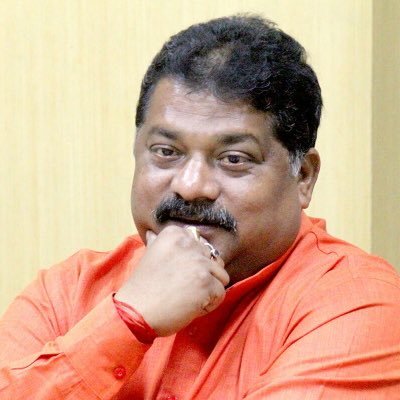The recent
resolution passed by the Goa Legislative Assembly to include Marathi as an
official language has once again ignited the conflict surrounding languages in
Goa. That this resolution, proposed by independent MLA Narendra Sawal, was
passed on the last day of the Assembly session, and when elections are just
round the corner, indicates that it has more to do with shifts and machinations
of political power than with the emotional connect of many Goans with the
Marathi language. Whether we like it or not, the ‘language issue’ is a potent
force for political mobilization and one needs to fight the communal
polarization of the ‘language issue’ by opening the language-sphere of Goa to
English, Romi Concanim, Portuguese, and Marathi.
The resolution
produced the same old frustrating responses from most Goans. Many felt that
“Konkani” was their “mother tongue” with which they shared an emotional
mother-child relationship, and that there was no place for any other language.
Others felt, erroneously so, that those Goans who were demanding official
recognition for Marathi should go to Maharashtra. Still others felt that the
existing Official Language Act of 1987 (OLA) should not be changed, thus
effectively implying that Romi Concanim should also not be given official
status. While the Marathi activists were understandably jubilant, this
jubilation seemed to be misguided on many levels, as the resolution was passed
without any mention of Romi Concanim. To be fair, a week later the Marathi
Rajbhasha Samiti demanded that Romi be included in the OLA. This resolution
probably owes its existence to recent calls for Marathi-Romi and Hindu-Catholic
unity. However, with this resolution by the Samiti coming too late, it would
perhaps end up doing too little.
In this context,
it is interesting to note the comments that the MLA of St. Andre, Vishnu Surya
Wagh, made in the Assembly as well as in his recent writings for a prominent
Marathi daily in Goa. Wagh, who is, at the moment of writing, recovering from
an illness, had vociferously written against the casteist, communal, and
chauvinist politics of nagri Konkani. While supporting the cause of Marathi,
Wagh had also made the strong case that Romi Concanim was a legitimate language
of Goa, and one that was older than the nagri-scripted Konkani. Wagh also spoke
in the Assembly on the Medium of Instruction (MoI) issue. In his characteristic
oratorial style, Wagh argued that because Romi was denied to a large number of
Catholics, and nagri Konkani foisted on them, Catholics were demanding English
education for their wards. While one can partially agree with Wagh, his
opposition to English is problematic. For one, English is not just the demand
made by Catholics, but bahujan Hindus too, as their socio-economic aspirations are tied to that
language. The
‘Marathi-lovers’ must necessarily recognize this fact. Further, to not
recognize the importance of English would be to drag the people of Goa back
into the narrow and parochial linguistic politics, endangering the education
and futures of Goa’s children.
In recent times,
Wagh has emerged as the one politician and language activist who has taken a
holistic stand on the language question. His arguments extended beyond language
per se, to recognize that language is linked to power and communities. However,
all the good work that he did proved to be fruitless by the one resolution that
was passed in his very presence. So, how are the language wars to be won as
well as ended once and for all? To do this one needs to think differently from
how we have been thinking so far. One should begin by seeing the MoI issue as
not separate but one which emerges out of the already existing language
problem. Thus, the problem will fade away if grants to English medium schools
are immediately legalized, irrespective of whether they are diocesan or not. It
is quite ridiculous that the Goan state which makes laws in English, and
conducts state business in English, does not want its young citizens to study
in English. One should also think about expanding the linguistic sphere of Goa
by recognizing the Portuguese language as important for Goa’s people in terms
of legal frameworks, history, culture, and mobility.
Most
importantly, Romi Concanim needs to be recognized as official post haste. Not just this, it is the need of the hour to
privilege Romi Concanim over nagri Konkani or even Marathi. With nagri Konkani
as official and Marathi allowed to be used for all official purposes, the
status quo needs to be shaken. This is so because a lot needs to be done to
make Marathi politics work in favor of all Goans. Marathi-supporters have not
yet been able to tell us how the interests of Catholics will be safeguarded,
considering that jobs have been secured by many with the knowledge of Marathi
(and nagri Konkani), despite Marathi being not recognized as fully official.
The Marathi-supporters haven’t been able to tell us how they will stop the use
of the Marathi language for the spread of Hindutva, for many know that it is through the emotional and
cultural bonds of Marathi that Hindutva has mobilized in Goa over the last few
decades. The
Marathi-supporters haven’t told us why the Marathi movement which began as a
pro-bahujan, anti-brahmin, anti-caste movement was compromised in favor of
Brahmanism and Hindutva. Marathi activists need to clearly think about how to
move away from the ‘Marathi-equals-merger’, a political fear not entirely
baseless, which emerged out of the politics of Dayanand Bandodkar and the
Maharastrawadi Gomantak Party in the 1960s.
Thus, it is
imperative that the language-sphere of Goa is expanded to include Romi Concanim
and legalize grants to English as MoI, and only subsequently recognize Marathi
as official. Doing so, one would not only escape the claustrophobic language
politics of Goa, but also craft a more international Goan citizenry, while
effectively challenging the rise of Hindutva.
(First published in O Heraldo, dt: 31 August, 2016)







